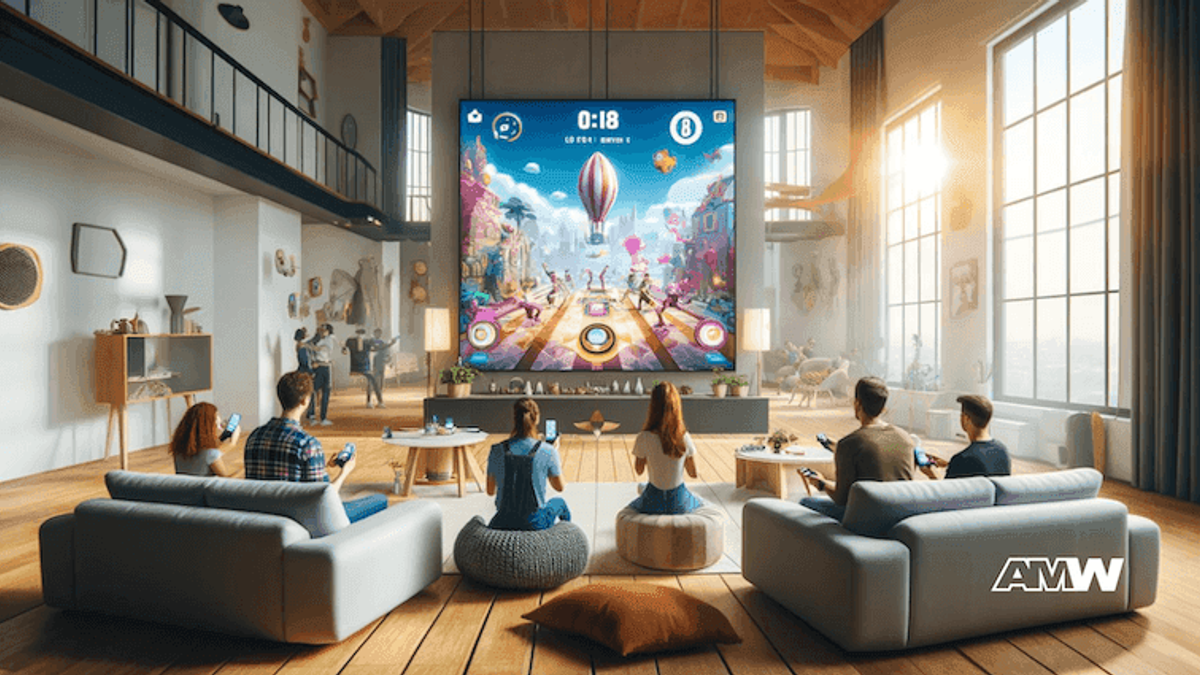Top Virtual Event Ideas for 2026

The virtual space has become a dynamic platform for hosting various events, from webinars and workshops to social gatherings and large-scale conferences.
Quick Summary
The rise of virtual events has transformed professional engagement, offering unparalleled opportunities for networking, learning, and collaboration beyond geographic limitations. Innovative concepts like virtual escape rooms and scavenger hunts enhance participation and teamwork. These unique social gatherings, including virtual coffee breaks and museum tours, foster community while promoting mental health. As event organizers embrace creativity, the goal remains to create impactful experiences
The significance of virtual events in the professional world has escalated remarkably over recent years. This shift towards digital platforms has revolutionized the way we connect, learn, and engage with each other.
Virtual events, encompassing virtual conferences, webinars, and corporate meetings, have opened up new avenues for networking, learning, and collaboration without the geographical constraints associated with in-person events.
Ready to Grow Your Business?
Get a custom strategy tailored to your goals.
Introducing fun virtual event ideas, such as virtual escape rooms and virtual scavenger hunts, has injected a dose of excitement and engagement into the virtual event landscape.
These creative concepts make for a more engaging experience and foster teamwork and communication skills among team members. For instance, a virtual game night or happy hour can be a casual, fun way for remote teams to bond and unwind, reinforcing team spirit in a virtual environment.
Moreover, virtual event ideas have expanded to include unique social event ideas like virtual coffee breaks, virtual museum tours, and even virtual garden parties. These events offer a break from the traditional webinar format, allowing for a more relaxed, informal interaction among attendees.
For corporate entities, integrating these unique experiences into their virtual corporate events can significantly enhance employee engagement and mental health by providing a fun escape from the routine.
Event organizers continuously explore the best virtual event ideas to keep their audience engaged and interested. Incorporating virtual booths, breakout rooms, and keynote speakers in virtual conferences simulates the experience of in-person events, offering an interactive and immersive online event experience.
For instance, virtual tours of historic sites or virtual trips to exotic locations can add an educational and entertaining element to any online event, broadening the horizons of attendees and making each virtual gathering a memorable journey.
The next virtual event might aim to provide engaging and innovative experiences. It might feature virtual magic shows, or even virtual talent shows, encouraging attendees to showcase their skills in a supportive virtual setting.
These activities serve as excellent virtual event ideas and help enhance participants' communication and creative skills, making them more confident and engaged.
As the virtual event landscape continues to evolve, the emphasis on creating more engaging, interactive, and fun virtual events has never been greater. The possibilities are endless, from virtual happy hours to virtual movie nights and even online game nights.
These events offer a fun way to socialize and network in a virtual setting and help foster a sense of community and belonging among participants.
The move from in-person to virtual events has opened many opportunities for event organizers and participants. By leveraging video conferencing platforms and virtual spaces, we can create an inclusive, engaging, and diverse event experience that caters to a broader audience.
Whether it's a virtual coffee meeting to encourage employees, a virtual book club to connect family members and friends, or a virtual comedy show for a light-hearted evening, the goal is to make each virtual event a unique and enjoyable experience for all attendees.
From virtual corporate events to casual virtual social gatherings, the aim is to create spaces that encourage learning, networking, and, most importantly, fun. With the right approach and creativity, virtual events can be just as impactful as their in-person counterparts, if not more.
Let's look forward to creating more engaging, innovative, and fun virtual events that unite people, regardless of their physical locations.
Virtual Events in General

Over the past few years, the landscape of virtual events has undergone a remarkable transformation, driven by technological advancements and a shift in audience expectations.
The evolution from traditional in-person events to dynamic virtual spaces has expanded the horizon for event organizers and reshaped how we perceive and engage with virtual gatherings.
In the early days of virtual events, the focus was primarily on replicating the in-person experience in a digital format. However, as technology progressed, so did the possibilities for creativity and innovation in the virtual event space.
Video conferencing platforms became more sophisticated, offering features like breakout rooms for smaller group discussions, virtual booths for exhibitors, and even virtual tours that provide an immersive experience for attendees.
Introducing fun virtual event ideas such as virtual escape rooms and virtual scavenger hunts marked a significant shift in audience engagement strategies. These interactive elements made virtual events more enjoyable and encouraged participation and teamwork among attendees.
For example, hosting a virtual game night or happy hour became a popular way to foster social connections and build team cohesion within remote teams.
Event organizers began to explore unique virtual event ideas to meet the growing demand for engaging and memorable online experiences.
Virtual garden parties, virtual museum tours, and virtual coffee breaks offered attendees a refreshing break from the conventional webinar format, allowing for more casual and interactive engagements.
Such innovative approaches to virtual events have proven effective in maintaining audience interest and participation.
The need for engaging virtual event ideas became even more pronounced as virtual conferences and corporate events increased.
Recognizing this, event organizers started incorporating features like live polling, Q&A sessions, and virtual talent shows to make each event unique and interactive. This enhanced the attendee experience and provided valuable feedback for hosts to improve future events.
Moreover, hybrid events emerged, blending the best of both virtual and in-person experiences. This model offers greater flexibility and accessibility, allowing a broader audience to participate regardless of geographical location.
For instance, a hybrid conference might feature live keynote speakers at a physical venue while offering virtual attendees the opportunity to join through a live stream and participate in online networking opportunities.
As we look towards the future, the virtual event landscape continues to evolve, with an increasing emphasis on personalization, interactivity, and inclusivity. Virtual events have become a platform for sharing knowledge, networking, and promoting mental health and well-being through engaging activities and social gatherings.
In summary, the evolution of virtual events from simple online meetings to elaborate and engaging digital experiences reflects the innovative spirit of event organizers and the changing preferences of audiences worldwide.
As we continue to explore and expand the possibilities within the virtual event space, we can expect to see even more creative virtual gatherings that connect, inspire, and entertain participants from all corners of the globe.
Virtual Event Ideas for 2025

The horizon for virtual events shines brighter, with many innovative and engaging ideas waiting to transform the digital experience.
These events have become crucial in maintaining connections, fostering community, and ensuring continuous learning and development in a professional setting.
Here are some fresh and exciting virtual event ideas to captivate and engage audiences in the coming year.
Interactive Workshops and Webinars

The power of interactive workshops and webinars lies in their ability to engage the audience actively, making the learning process both enjoyable and effective. Incorporating polls, Q&A sessions, and live demonstrations can significantly enhance the attendee experience.
For instance, an engaging virtual event idea might involve a live cooking class where participants can ask questions in real time or a virtual escape room that encourages problem-solving and teamwork.
These interactive sessions keep attendees engaged and promote a deeper understanding of the presented content.
Virtual Networking Events

Networking is a cornerstone of professional development, and virtual networking events offer a unique opportunity to connect with peers, industry leaders, and potential collaborators from around the globe.
Utilizing breakout rooms and speed networking sessions can mimic the in-person networking experience, allowing participants to engage in conversations and build professional relationships.
Ready to Grow Your Business?
Get a custom strategy tailored to your goals.
For example, a virtual conference could include a dedicated virtual happy hour, providing a relaxed environment for attendees to mingle and exchange ideas.
By facilitating these connections in a virtual space, we can transcend geographical limitations and foster a global community of professionals.
Online Conferences and Summits

Large-scale virtual conferences and summits have become increasingly popular, providing a platform for thought leadership, industry trends, and global networking.
Organizing such events requires a keen eye for detail and innovation to ensure they are informative and engaging. Including keynote speeches, panel discussions on hot topics, and virtual booths for sponsors can create a comprehensive event that offers value to every attendee.
Additionally, offering virtual tours of exhibition halls or virtual trips to relevant sites can add an extra layer of engagement, making the online conference an unforgettable experience. For sponsors and exhibitors, virtual booths present an opportunity to showcase their services to a broader audience, enhancing their visibility and interaction with potential clients.
The landscape of virtual events in 2025 is ripe with potential for creativity, engagement, and global reach. By embracing these virtual event ideas, organizers can create experiences that exceed the expectations of their audiences.
From interactive workshops to immersive online conferences, the goal is to provide a platform where knowledge is shared, connections are made, and communities are built. As we navigate the virtual world, these events play a pivotal role in shaping the future of professional development and community engagement, offering a glimpse into limitless possibilities.
Virtual Team Building Activities

In remote work, maintaining team cohesion and a sense of community among team members has never been more critical. Virtual team-building activities offer a fun and effective way to build camaraderie, improve communication skills, and boost morale.
For instance, hosting a virtual escape room challenges teams to work together and escape before time runs out, emphasizing teamwork and problem-solving in a thrilling virtual environment.
Trivia games, themed around industry knowledge or pop culture, can spark friendly competition and laughter, while online challenges, such as virtual scavenger hunts, encourage creativity and collaboration.
These activities serve as a break from the routine and strengthen the bonds between remote employees, making them feel more connected and engaged with their team and the organization.
Educational Courses and Masterclasses

The virtual world offers an unparalleled platform for continuous learning and professional development. Educational courses and masterclasses presented in a virtual format allow individuals to deepen their knowledge and skills in various fields, from technical subjects to creative arts.
This virtual event idea caters to the growing desire for lifelong learning, enabling attendees to learn from experts and industry leaders without the constraints of physical location.
By incorporating interactive elements like Q&A sessions, live demonstrations, and group projects, these courses can provide a rich, engaging learning experience that rivals in-person classes.
For organizations, offering such educational opportunities can significantly add to employee value and encourage personal and professional growth.
Virtual Social Events

Social interactions are a fundamental human need, and virtual social events have emerged as a creative way to meet this need in the digital age. Ideas for these events are limitless, ranging from virtual happy hours and theme parties to online concerts and virtual tours of exotic locations or famous museums.
These gatherings provide a much-needed outlet for socialization and relaxation, allowing participants to unwind, enjoy shared experiences, and form personal connections, all in their homes.
A virtual garden party, for example, can bring together gardening enthusiasts to share tips and showcase their green spaces.
In contrast, a virtual movie night offers families and friends a way to enjoy films together and apart. Such events help maintain a sense of community and belonging.
Gamified Events

Gamification is a tool to enhance engagement and participation in virtual events. By integrating game mechanics such as points, leaderboards, and rewards, event organizers can create a more dynamic and interactive experience. Virtual scavenger hunts, for example, can be an engaging way to explore new topics, with participants following clues and completing tasks to win prizes.
Similarly, implementing a leaderboard for a series of educational webinars or workshops can encourage continued attendance and participation, rewarding those who engage most actively. These gamified elements make virtual events more enjoyable and foster a competitive spirit, motivating attendees to fully immerse themselves in the experience.
Whether for educational purposes, team building, or fun, gamifying virtual events can significantly enhance their appeal and effectiveness.
The opportunities for virtual events are boundless. By incorporating these innovative and engaging virtual event ideas, organizations can create meaningful and memorable experiences that foster learning, connection, and community in the virtual world. Whether through team-building activities, educational opportunities, social gatherings, or gamified events, the key to success lies in creativity, inclusivity, and a deep understanding of the audience's needs and expectations.
Let's continue pushing the boundaries of what's possible in the virtual event landscape, creating spaces where people can connect, learn, and grow together, no matter where they are.
Planning Your Virtual Event

A virtual event relies on meticulous planning and execution. In virtual events, understanding how to navigate the planning process effectively is crucial.
From selecting the right platform to engaging your audience and measuring success, every aspect plays a vital role in delivering a memorable virtual experience. Let's dive into some key considerations for planning your next virtual event.
Choosing the Right Platform
The choice of platform is foundational to the success of any virtual event. For large-scale virtual conferences, a platform that can support thousands of participants and features like virtual booths and breakout rooms is essential.
Conversely, a more intimate virtual coffee break or book club might only require a simple video conferencing tool with high-quality audio and video capabilities.
Interactive features are essential for keeping the audience engaged. Platforms that offer live polling, Q&A capabilities, and the option for live reactions can transform a passive viewing experience into an interactive and engaging session.
Additionally, robust technical support is crucial, especially for large or complex events, ensuring that any technical issues can be swiftly addressed without significant disruption to the event.
Engaging Your Audience
Engagement is the heartbeat of any event, virtual or otherwise. Strategies for engaging your audience should be multifaceted and encompass before, during, and after the event. Before the event, leverage social media and email marketing to build anticipation and inform potential attendees about what they can expect. This could include teasers of the content, introductions to keynote speakers, or highlights of unique virtual event ideas planned for the event.
Ready to Grow Your Business?
Get a custom strategy tailored to your goals.
During the event, encourage interaction through the features provided by your chosen platform. Interactive content, such as virtual escape rooms for team-building segments, live polls during presentations, and virtual scavenger hunts, can make attendees feel like active participants rather than passive observers.
Furthermore, encouraging attendees to share their experiences in real time on social media can amplify your event's reach and engagement.
Post-event engagement is just as crucial. Follow up with attendees through email surveys or social media polls to gather feedback, share key takeaways from the event, and provide information on upcoming events. This not only aids in measuring success but also helps maintain the momentum of engagement.
Measuring Success
Measuring success is the final, pivotal step in virtual event planning. Collecting feedback directly from attendees through surveys or feedback forms is invaluable.
Questions should be designed to gauge the overall experience, the content quality, and the interactive elements' effectiveness. Additionally, analyzing event data, such as attendance numbers, engagement rates (e.g., poll participation, Q&A sessions), and social media mentions, can offer concrete metrics on the reach and impact of your event.
Combining qualitative feedback with quantitative data provides a comprehensive view of your event's success and areas for improvement. This dual approach allows event organizers to refine and adapt their strategies for future events, ensuring that each virtual gathering is more engaging, informative, and enjoyable than the last.
In conclusion, virtual events presents an opportunity to connect with an audience in innovative and meaningful ways. By carefully selecting the right platform, actively engaging your audience, and diligently measuring success, you can elevate your virtual events to new heights, setting a standard of excellence in the virtual event space.
FAQ

What is a virtual conference?
An online virtual conference aims to recreate the immersive experience of an in-person conference. This innovative platform allows participants from across the globe to interact, network, and gain knowledge through a digital setting, breaking down geographical barriers and opening up new opportunities for learning and connection.
How do virtual conferences work?
Virtual conferences leverage online platforms to host live presentations, facilitate discussions, enable networking among attendees, and provide access to digital resources.
These platforms are equipped with various tools that mimic the interactive aspects of in-person events, such as breakout rooms for smaller group discussions, virtual booths for exhibitors, and chat functionalities for real-time engagement.
How do I create an online conference?
Creating an online conference requires careful planning and execution. Start by selecting a platform that fits the scale and needs of your event, then craft a compelling agenda that includes diverse formats like keynote speeches, panel discussions, and interactive sessions. Inviting speakers who are thought leaders in their fields can add significant value to your event.
Promoting your event through various channels and engaging your audience with interactive elements before, during, and after the conference are key steps to ensuring its success.
What are examples of virtual events?
The spectrum of virtual events is broad, encompassing webinars, virtual workshops, online networking events, virtual team-building exercises, and large-scale virtual conferences. Each format offers unique opportunities for engagement, learning, and connection, tailored to meet the needs and interests of diverse audiences.
How do you make a good virtual event?
An excellent virtual event is characterized by its ability to actively engage participants, maintain high levels of interactivity, and deliver well-organized content that resonates with the audience. Clear objectives, quality content, and ample opportunities for audience participation are essential components.
Incorporating fun virtual event ideas, like virtual escape rooms or scavenger hunts, can enhance the experience and keep attendees engaged.
How do you engage in virtual events?
Engagement in virtual events can be facilitated by actively participating in discussions, posing questions, networking with other attendees, and utilizing the interactive features provided by the hosting platform. The more you interact, the richer your event experience will be.
How do I host a virtual social event?
Hosting a virtual social event involves:
- Choosing a compelling theme.
- Selecting a reliable video conferencing platform.
- Incorporating interactive activities to encourage participation.
Whether it's a virtual happy hour, a virtual trivia night, or a virtual coffee break, the key is to create a relaxed and inviting atmosphere that encourages attendees to connect and enjoy themselves.
Conclusion

Embracing the boundless possibilities, we find ourselves at the cusp of transforming how we gather, learn, and celebrate in virtual spaces.
By infusing our virtual events with creativity, harnessing the power of the latest technology, and focusing on creating meaningful interactions, we pave the way for events that are not just successful but truly unforgettable and impactful.
Imagine a virtual conference that transcends geographical barriers, bringing together thought leaders and innovators from every corner of the globe to share insights and forge collaborations. Picture a virtual escape room designed for team building, where colleagues navigate challenges together, strengthening bonds despite physical distances.
Envision virtual happy hours and coffee breaks that recreate the warmth of social gatherings, making every participant feel at home, irrespective of their physical location.
The journey to orchestrating a successful virtual event is an art that requires an understanding of your audience's needs and preferences. Technology selection becomes a cornerstone, offering a presentation, interaction, and engagement platform.
Crafting content that informs, entertains, and inspires participation is essential. Each virtual event becomes a tapestry of experiences woven from virtual scavenger hunts to virtual garden parties to virtual museum tours, each designed to foster connections and spark curiosity.
The future beckons with the promise of virtual events that bridge distances like never before, uniting people across continents in a shared virtual environment. These events are not merely gatherings but vibrant communities where learning, networking and growth flourish.
The potential is limitless, From virtual conferences showcasing cutting-edge virtual booths to hybrid events that blend the best in-person and online experiences.
Let's seize this opportunity to craft virtual events that stand as beacons of innovation—where every virtual social event, from virtual movie nights to virtual comedy shows, enriches the fabric of our shared virtual world.
May we inspire our teams, encourage our employees, and delight our attendees with engaging virtual event ideas that resonate and leave a lasting impact.

Ready to Grow Your Business?
Get a custom strategy tailored to your goals.
Frequently Asked Questions
What are the best virtual event ideas for corporate teams in 2026?
The best virtual corporate event ideas for 2026 include virtual escape rooms, online scavenger hunts, virtual game nights, and virtual happy hours. These interactive activities promote team bonding and communication skills among remote employees. Virtual coffee breaks, talent shows, and interactive workshops with polls and Q&A sessions also enhance engagement. Event organizers should incorporate breakout rooms, virtual booths, and live demonstrations to create immersive experiences that foster collaboration and improve employee mental health while maintaining professional development goals.
How can virtual events be made more engaging and interactive for attendees?
Virtual events become more engaging through interactive elements like live polling, Q&A sessions, breakout rooms for smaller group discussions, and virtual booths for networking. Incorporating entertainment options such as virtual magic shows, virtual museum tours, and online game nights adds excitement. Event organizers should utilize sophisticated video conferencing platforms that support real-time interactions, virtual talent shows, and immersive virtual tours. These features transform passive viewing into active participation, creating memorable experiences that rival in-person events.
What virtual social event ideas work well for remote teams in 2026?
Effective virtual social events for remote teams include virtual garden parties, online movie nights, virtual book clubs, and virtual coffee meetings. These casual gatherings help build team spirit and provide mental health benefits by offering fun escapes from routine work. Virtual comedy shows, happy hours, and game nights create relaxed environments for informal interaction. These social virtual events foster community and belonging among participants while maintaining the flexibility and accessibility that virtual platforms provide for geographically dispersed teams.
How do hybrid events combine virtual and in-person experiences effectively?
Hybrid events effectively blend virtual and in-person experiences by featuring live keynote speakers at physical venues while offering virtual attendees live streaming access and online networking opportunities. This model provides greater flexibility and accessibility, allowing broader audience participation regardless of geographical location. Event organizers use sophisticated video conferencing platforms to ensure seamless integration between physical and virtual components. Hybrid events maintain interactivity through virtual booths, breakout rooms, and real-time Q&A sessions that engage both audience segments simultaneously.
What are the most innovative virtual conference formats for 2026?
Innovative virtual conference formats for 2026 include immersive virtual environments with 3D networking spaces, gamified learning experiences with virtual scavenger hunts, and interactive virtual tours of relevant locations. Modern conferences feature sophisticated breakout rooms for specialized discussions, virtual exhibition halls with interactive booths, and live polling systems for real-time audience feedback. Event organizers are incorporating virtual talent showcases, educational virtual museum tours, and hands-on virtual workshops that encourage active participation and skill development among attendees.
How can virtual events improve employee engagement and mental health?
Virtual events improve employee engagement and mental health by providing fun escapes from routine work through activities like virtual game nights, virtual coffee breaks, and virtual garden parties. These events foster social connections and team bonding essential for remote worker well-being. Interactive elements such as virtual talent shows and comedy performances boost morale and creativity. Regular virtual social gatherings help combat isolation, build community among team members, and provide opportunities for informal communication that supports overall mental health and job satisfaction.
What technology platforms are essential for hosting successful virtual events in 2026?
Successful virtual events in 2026 require sophisticated video conferencing platforms that support breakout rooms, virtual booths, live polling, and real-time Q&A functionality. Essential features include screen sharing for presentations, virtual tour capabilities for immersive experiences, and interactive tools for games and workshops. Event organizers need platforms that handle large-scale conferences while maintaining audio-visual quality and supporting hybrid event formats. Integration capabilities for virtual networking spaces, exhibition halls, and collaborative tools are crucial for creating engaging, professional virtual experiences.
Related Resources
Calculators
Pricing Guides
Key Terms
Marketing strategy that promotes brands, products, or services through hosted or sponsored in-person or virtual events.
Attendee AcquisitionThe marketing strategies and tactics used to attract and convert target audiences into event registrants.
Event Experience DesignHolistic approach to creating memorable, purposeful attendee journeys at events.
Attendee Acquisition StrategyPlanned approach to attracting and registering target audiences for events.
Post-Event StrategyPlanned follow-up activities that extend event value and drive business outcomes.
Related Articles

Mastering Event Planning: Key Strategies for Unforgettable Conferences and Seminars
The world of event planning can be an arena where creativity meets logistical precision. When it comes to organizing successful conferences and seminars, it's about more than just filling a room w

The Ultimate Guide to Becoming a Successful Events Manager
Event managers are the backbone of any successful event, making sure everything runs smoothly from start to finish.

40 Great Event Ideas for Inspiration
Organizing an event, whether it’s a corporate function or a social gathering, requires meticulous event planning and a dash of creativity to make it memorable. The right event idea can transform an